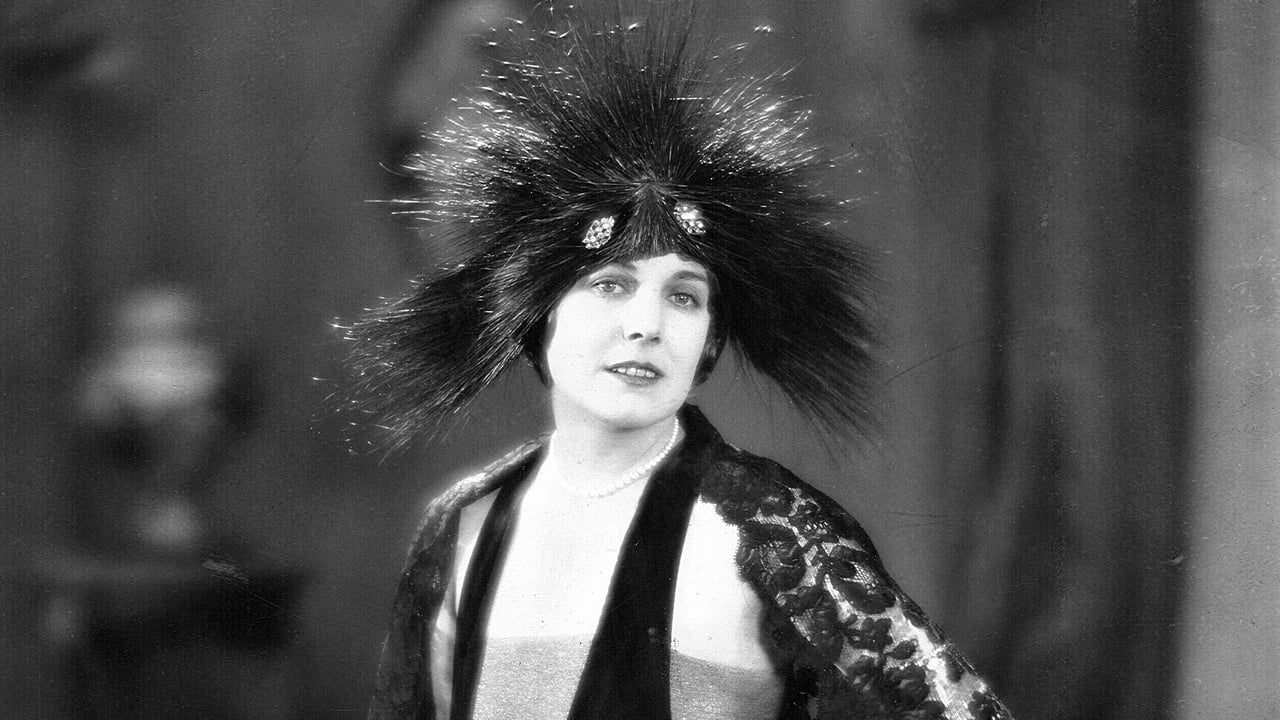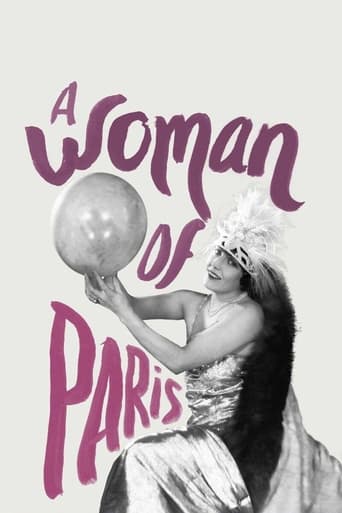

Am a big fan of Charlie Chaplin, have been for over a decade now. Many films and shorts of his are very good to masterpiece, and like many others consider him a comedy genius and one of film's most important and influential directors. It is hard to not expect a lot after not long before Chaplin had one of his earliest career highs in 'The Kid'. 'A Woman of Paris: A Drama of Fate' doesn't disappoint, and it shows Chaplin having properly found his style and fully settled. As said with many of his post-Keystone efforts, it shows a noticeable step up in quality though from his Keystone period, where he was still evolving and in the infancy of his long career. The Essanay and Mutual periods were something of Chaplin's adolescence period where his style had been found and starting to settle. After Mutual the style had properly settled and the cinematic genius emerged. Very much apparent here in 'A Woman of Paris: A Drama of Fate', which may not be one of Chaplin's best but it is to me one of his most under-appreciated.It is let down by the melodramatic ending that comes over too as silly and an interpolated music score composed not long before Chaplin's death that is intrusive and doesn't fit the film. On the other hand, 'A Woman of Fate: A Drama of Fate' looks great, from Essanay onwards, and it is certainly the case here, it was obvious that Chaplin was taking more time with his work and not churning out countless shorts in the same year of very variable success like he did with Keystone. It's actually one of his technically best-looking efforts from this period.'A Woman of Paris: A Drama of Fate' is also funny and very charming, never coming over as dull and never being too over-sentimental. It features some of Chaplin's most remarkable directing of any effort of his up to this point in his career. He similarly gets the best out of his cast, with the standouts being the ever charming and quite touching Edna Purviance and especially a superb Adolphe Menjou in a star-making turn. Concluding, very well done. 8/10 Bethany Cox
... View MoreA Woman of Paris has all the makings of a film noir, but fails to deliver on this score, despite the tragic end met by one of the major characters. Chaplin, as writer/director/producer observes the action of this character at a distance (and the fact that he is enacted by a rather charmless Carl Miller further adds to an audience's lack of empathy).Despite Chaplin's Foreword insistence that his movie is not a comedy but a drama, it is actually for the most part an enjoyable comedy of manners, a field in which delightfully dapper Adolphe Menjou excelled, enabling him to easily snatch the picture from its nominal star, Edna Purviance. It seems Chaplin's camera cannot help but focus on Menjou. Chaplin's classy dialogue sub-titles also added a fillip, but Menjou's breezy, rich-as-they-come, luxuriantly self-indulgent take-it-it-leave-it manner would have ensured his success even without Chaplin's help.Chaplin actually conceived the film to launch Edna Purviance (who had starred with him in shorts like the 1919 Sunnyside) as a major star. This ploy was not successful. In my opinion, Miss Purviance lacked both the figure and the charisma that Hollywood stardom demanded. In the Chaplin shorts, she is little more than a foil for the tramp. In A Woman of Paris even newcomer Betty Morrissey and minor players like Malvina Polo, Henry Bergmam and Nelly Bly Baker steal scenes from her, to say nothing of Lydia Knott who compels attention as Jean's fussed mother.
... View MoreA Woman of Paris is probably best known, ironically, by the fact that it is a Chaplin film that Chaplin does not appear in. It opens with a title card in which Chaplin himself wishes to clear up any misunderstanding by mentioning that he does not appear in the film, but my understanding is that it was a popular and critical failure at the time of its release. He does appear in the film, but walks on and off screen so fast and looks so little like himself that there is really no reason for him to be there. The film's popular failure seems to have been something that plagued him through the rest of his career, since he returned to the film and re-scored it at the age of 87. It was the last work he ever did as a filmmaker, and the result was that people finally recognized the film for the master work that it is. We meet a young woman whose father keeps her in the house under lock and key, but who nevertheless escapes at night to visit her lover, whom she plans to marry. One night, her father sees her leaving, and then locks her out. He then proceeds over-react to the point where he won't allow her in the house, so she is forced to try to go find a place to stay at her boyfriend's house. It is a curious illustration of 1920s society that his parents want to kick her out of the house as though she were a diseased rodent. They are committing an unpardonable sin by being together at night outside of marriage. It's easy to sympathize with their desperate situation.Soon, tragedy strikes, which leads to a tragic misunderstanding which, I have to say, is not presented very well in the movie. This is, however, probably the film's only weak point. I had to wonder why this even allowed for a level of misunderstanding that enabled her to move to Paris and join high society without ever talking to the man for long enough for him to explain what happened. It's also a little strange that they both appear to be in their mid-30s or so and are yet not only unmarried but still live with their parents. Nevertheless, she joins a wealthy social circle and becomes involved in their wealthy and loveless life, surrounded by rich people in constant leisure, smoking cigars, drinking champagne, and eating truffles ("a delicacy for pigs and gentlemen "). It is inevitable that they will meet again at some point, and when they do, time has, indeed, made strangers of them, but his love is still alive. He has become an accomplished artist and she hires him to paint her portrait, which again intertwines their lives.It is interesting that he is still mourning the death of his father, even years later. But he comes from a world where relationships are extremely important, whether romantic or family, and she, on the other hand, has entered a world of money where relationships are startlingly meaningless. She drags her feet at talking about the history between them, saying that she doesn't want to dig up the past, while he interestingly looks directly at the camera and explains that he is still badly hurt by what has happened.Soon, she is forced to choose between a life of love or a life of luxury, and it is notable that the rich man that she was in a "relationship" is pointedly indifferent when she leaves him, explaining that he'll never see her again. "Okay, phone me sometime," he says as he casually walks out the door, leaving her to do as she will. Soon, things seem to be looking up for their mutual happiness, but another tragic misunderstanding (or at least badly timed conversation), throws everything into chaos again. When she leaves, Jean, her boyfriend, becomes desperate.The ending of the film is deeply symbolic, and involved a long road, like the ending of some of Chaplin's better known short comedies. The film's message, that time heals and the secret of happiness is in service to others, doesn't need to be delivered as directly as it is, but it also doesn't hurt the movie that this happens. It's a deeply moving story that illustrates an unfortunate aspect of a certain level of society, a level about which Chaplin was certainly no stranger. It is definitely, as the title says, a drama of fate, and makes a strong comment about what is important in life. It's interesting to consider Chaplin's personal life at the time that the movie was made, but I think it's more important to let the film stand on it's own. This is a brilliant piece of film-making.
... View MorePreviously my picture of Mr Charlie Chaplin in my mind's eye had been the following: a tiny clownish fellow who kicks other actors in the ass and gets thrashed and kicked in reply. In the course of time my perception changed. His music was playing as the background for the movies he participated in. Surprise. It was not Mozart but the clown himself. Now there is this film and it's definitely cinematic art. So many present-day directors cannot reach even 1/100th of the effect that is achieved by this black-and-white film that is even mute. It has no fountains of blood, no slo-mo, no bullets hitting foreheads, no explosions, no sex scenes, no *beep* words, no crude toilet humour, no trash-talk, no flat melodramatic elements, no crocodile tears, no stupid laughs. What more should a viewer want? The bitter irony and drama are scattered here and there. Its quality can be compared to the quality of the famous "Jeeves and Wooster" before it hit the appalling cast changes (hope, you know what is meant here).Here goes mine 10.Thank you for attention.
... View More